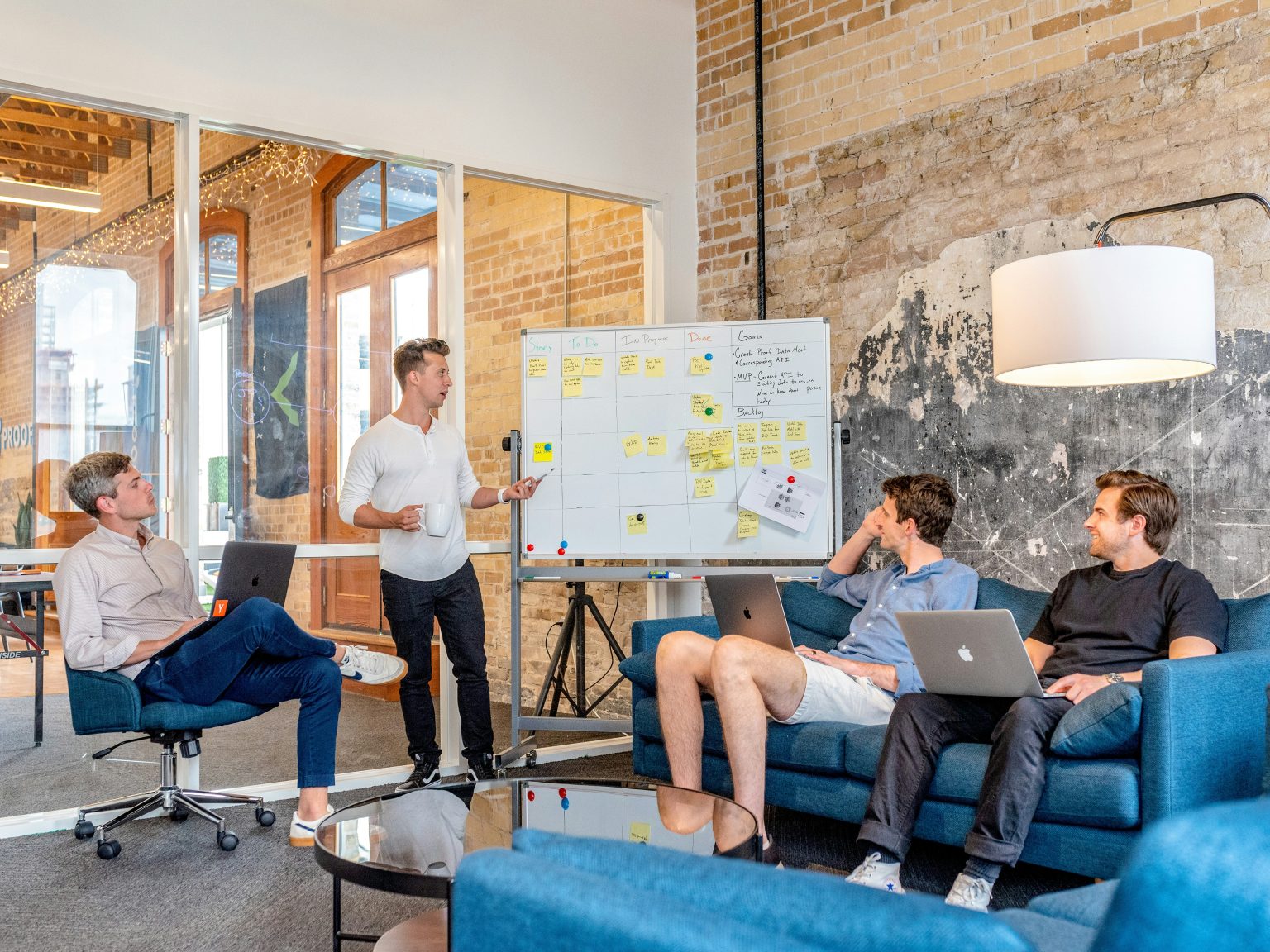

AI
Healthcare R&D and AI synergy: Nvidia-backed AI startup SandboxAQ has created a new dataset to accelerate drug discovery.
SandboxAQ set a new industry standard by releasing a synthetic dataset of 5.2 million new molecular structures to advance the prediction of drug-protein binding, which will improve testing of whether a candidate drug will bind its target. AI has become an integral technological asset in advancing pharmaceutical R&D processes, and synthetic data is a driving force behind innovations in life sciences. AI tools provide new opportunities for emerging niches in biotech and pharma by reducing expenditure on testing, trials, and real-world experiments. However, startups must build their business model by integrating advanced AI solutions to withstand competition. SandboxAQ, with its current valuation of $1 billion, demonstrates strong investor confidence in AI-biotech. While this trend will increase entry barriers, investors will target proven AI healthcare startups.
AI startups enter legal crosshairs: BBC issues legal warning to Perplexity over alleged unauthorized use of copyrighted content.
Perplexity’s chatbot sourced copyrighted news articles without permission, which resulted in the BBC threatening legal action if the startup continued using BBC content to train its AI models. Media companies will strengthen control over published content, and this instance may contribute to lawsuits and increased calls for transparent data sourcing. Legal scrutiny may slow model training and increase costs, as startups will be obligated to prioritize licensing and IP compliance to avoid legal risks. Legal risks add complexity to AI startup valuations, and IP compliance may eventually become a critical due diligence factor in the foreseeable future.
Vendor Risk in the AI Era: Google decided to discontinue business with Scale AI.
Meta’s $14 billion investment in Scale resulted in Google’s departure from the collaboration, and Microsoft and OpenAI have started reducing their reliance on Scale. Competitive dynamics directly affect vendor relationships in AI, where corporate alliances and investments can lead to service shifts. Diversification and neutrality are critical factors for stability, and reliance on a single large client is a risky strategy for tech startups. Political and competitive factors play a decisive role in AI vendor viability, as strategic actions by tech corporations can affect startup revenue forecasts, resulting in a shift of investors’ interest toward startups with non-conflicted client bases.
AI threatens publishers: Search traffic decline endangers revenue models.
Cloudflare’s CEO has admitted that AI-generated answers lead to a decline in search traffic to publishers, disrupting traditional ad-based revenue models.AI innovations threaten traditional content monetization models through unauthorized scraping, and tech companies like Cloudflare will gain relevance with their solutions to protect content. Companies should readjust their content publishing strategies and monetization methods according to consumption patterns, while licensing might become a top priority. Licensing and compliance will become key investment criteria, as investors will support companies with sustainable content strategies.
Shaping the future of agentic AI: Y Combinator leads the innovation process.
Y Combinator’s Spring cohort includes 70 startups building agentic AI, which paves the way for next-generation solutions. Autonomous AI will lead the next wave of disruptive tech trends, resulting in the emergence of new vendor ecosystems and operational shifts in businesses. Startups will benefit from investor confidence in autonomous AI platforms and tools, leading to market differentiation and opportunities for new entrants. Large VC funding will prioritize startups with scalable autonomous AI technologies, setting a new focus area for AI investment in the coming years.

Startups
Reinventing energy: Ostrom Raises €20 million to scale their smart solutions for the German energy and utilities sector.
Berlin-based Ostrom secured funds to advance its AI solutions, including virtual technology with smart sensors, for optimizing stale power plant technologies. Despite the prevailing skepticism in sustainable energy-tech solutions, investors demonstrate opposite attitudes by investing in companies focused on efficiency and decarbonization. The mentioned confidence will continue revitalizing startup markets oriented on climate and energy services. Grid optimization with energy data platforms will lead the trend. Energy tech is reemerging as a strategic investment area. However, VCs will back scalable, infrastructure-focused startups.
A new face of legaltech: CaseCraft.AI raises €644,000 to expand its AI-guided platform.
CaseCraft.AI will continue the development of their AI-powered platform that offers services to aid individuals and small businesses in managing small claims disputes. Legal services experience accelerated transformation, where consumer law and small disputes benefit from AI solutions. Legal-tech stands as a promising niche that demands automation of law and dispute resolution. At the current stage, investors share a cautious interest in such solutions, though startups like CaseCraft.AI, with strong UX and compliance, already lead the way.
Unorthodox tourism revival: Winalist successfully raised €1 million to expand wine tourism.
Winalist shares an ambitious goal of managing a global network while supporting local wine tourism providers through its digital marketplace solution. Digital platforms have a critical role in shaping the competitive environment in experiential travel and niche tourism, and such solutions rebound the post-pandemic state of the industry in addition to the transformation of book services. Such an event indicates available space for vertical travel platforms with strong local partnerships. In turn, startup founders should note that investors will support experience-based tourism. Tourism tech attracts capital through monetization of local culture and lifestyle, opening new investment opportunities after the outbreak.
A new level of wholesale procurement digitalization: Delfio secured €1.5 million pre-seed to launch an automated purchasing platform.
Amsterdam-based Delfio will use the recently raised funds to launch a collective procurement B2B platform. Digital sourcing disrupts traditional wholesale through automation and group purchasing solutions. The supply-chain fintech sector offers unique opportunities to serve small buyers. New competitors are likely to emerge in the near future. Investors will target fintech startups that modernize procurement for SMEs. Delfio’s model demonstrates high revenue potential with further market expansion.
AI micro-investing platforms make a turn: Grifin raised $11 million to simplify stock investing with its solution.
Grifin will continue expanding its investing app by developing AI chatbots and family plans designed to buy stocks based on users’ shopping habits. This event indicates that retail investors want simpler, more relatable tools. Consumer fintech will evolve by enabling behavioral finance and AI-driven personalization. Democratized investing will become a trending and fertile space for startups. Startups can leverage AI to differentiate their products alongside intuitive interfaces. VCs will show increased interest in consumer-facing fintech startups that combine lifestyle data with financial products for unique market positioning.

Finance
Reforging European Defense: VCs Fuel Modernization of Europe’s Defense Sector.
Total VC investment in the EU defense sector is expected to reach €800 billion by 2030, creating unique momentum for dual-use tech companies. Geopolitical trends have created a solid foundation for defense-tech innovations to flourish in the coming years. Despite high uncertainty and criticism, European defense will undergo radical transformations aimed at strengthening EU sovereignty. Drone, cybersecurity, and AI startups will lead the trends. However, founders should be aware of regulatory complexities, especially ESG constraints. Defense tech presents unprecedented growth opportunities. However, the highly regulated environment and compliance requirements may necessitate forming specialized funds or partnerships to navigate the challenges.
Comeback for autonomous vehicles: BlackRock and Kleiner Perkins make a massive capital injection.
Applied Intuition raised $600 million to expand its research on autonomous vehicle design, with BlackRock and Kleiner Perkins backing this funding round. This massive capital inflow underscores the potential of autonomous vehicle technology, which will revitalize this niche again. VCs will focus on scalable startups, while potential partnerships with large automakers will simplify market entry and support the development of solutions with high ROI potential. Investors may target startups with proven technology and partnerships. If Applied Intuition succeeds, it will represent a technological breakthrough compared to early attempts in 2014.
Digital health’s new frontier: Sword Health reaches a $4 billion valuation.
Investors intensified competition in healthtech, and Sword Health secured funds to continue the development of virtual physical therapy devices. Investors are focused on startups with AI-driven solutions. Virtual therapies underscore how such investments support healthcare modernization. Healthtech startups will face high risks but have excellent opportunities to capitalize on the growing market for AI-enabled health solutions like wearables and virtual therapy. This case demonstrates that VCs do not support experimental solutions. Instead, scalable AI healthtech with strong clinical adoption of offered solutions will attract investments.
Big investment amid funding slowdown: Coralogix Raised $115 million to expand its AI monitoring solution.
Coralogix makes a sharp turn with secured funds that will support the development of cloud monitoring tools powered by AI features. AI integration in cybersecurity and cloud infrastructure remains a challenging area. However, this case may revive investor interest amid a slow funding environment. Startups in the enterprise AI space must solve high-cost, high-friction problems instead of building generic solutions. Despite the high risks and crowded market, Coralogix’s success demonstrates that startups can gain traction and revenue. Late-stage capital consolidates around category leaders, shifting the focus from early-stage ideas to winners.
Return of investor optimism: Ramp’s rapid rise continues with a $200 million funding round.
Founders Fund invested in Ramp to sustain its leadership in the fintech market. Ramp’s success is a critical historical point that indicates the ongoing transformation of corporate financial tools. In turn, professionals will replace legacy ERP systems with modular and user-centric tools. B2B fintech is still a trending niche. However, investors will focus on actual productivity gains, not just chatbots or AI integrations. Investors will prioritize horizontal SaaS platforms, and these solutions will set the main trend for the next year. It is reasonable to expect consolidation and acquisition of smaller spending platforms and niche bill-pay tools to withstand the competition.

Marketing & Sales
Lending a hand: Mailchimp will present its AI-powered marketing solution to support SMEs.
Mailchimp unveiled a new suite of marketing tools designed to make digital marketing accessible and automated for small businesses. The toolkit’s value lies in empowering marketing teams to shift their efforts from manual execution to strategy, brand voice, and personalization logic. Such solutions will require adoption, and marketers should strengthen their data literacy and focus on upskilling.
Stop chasing single leads: The webinar will explore new approaches to working with whole groups of buyers.
Forrester and Workday speakers will lead a virtual webinar (July 23, 2025) and discuss how revenue teams can make high-value B2B deals by targeting a group of buyers. The webinar will explore multi-stakeholder engagement strategies and how to align sales and marketing around accounts using ABM.
Master AI and data-driven marketing in 2025: the summer school for marketers is waiting for you.
A specialized four-part webinar series (July 7-29, 2025) will cover all essential techniques and strategies to succeed in modern AI-driven environments. It is an excellent opportunity to get essential skills on how to integrate AI and data-driven approaches into B2B marketing.
AI redefines Account-Based Marketing: the online event will cover the latest findings and actionable recommendations.
The webinar (July 8, 2025) will focus on the latest insights on how AI acts as a force multiplier in B2B marketing. A unique chance to explore AI tools that improve the ROI of sales strategies.
Securing b2b growth: Mastering account-based success with exclusive insights from sales experts.
The ABM leaders panel (August 12, 2025) will share valuable recommendations on managing paid media investments and explain how to run impactful ABM campaigns in modern dynamic environments. It is an opportunity to master practices for cross-team alignment and measurable ABM campaign execution to increase customer engagement.




